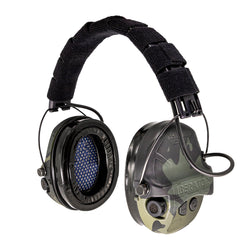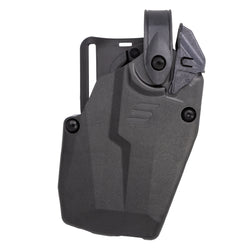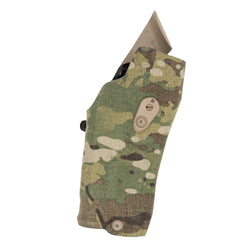If you’re reading this blog, I’m almost 100% positive you want to be better at shooting. I know this because even USPSA Grand Masters are trying to become better shooters.
Whether you’re a beginner or an experienced shooter, the desire to improve is universal. So, how can we become better shooters? There are plenty of strategies out there, and I’m here to share five guaranteed methods.
Five Guaranteed Ways To Be a Better Shooter
What kind of guarantee can I offer? Well, I can promise you a refund for what you paid to read this article! Sure, a guarantee from a free blog might not seem substantial, but as someone who has invested considerable time and money in becoming a better shooter, I’ve learned what truly works and what doesn’t.
These five strategies have proven to be the most effective tools in my arsenal.
1. Take a Class
The easiest way to learn how to become a better shooter is to find someone who shoots better than you and have them teach you.
Specifically, find an experienced instructor who is offering classes and take one. You will learn what you’re doing wrong and how to do it right. An instructor can watch you from a different angle, observe your flaws, and teach you ways to fix them.

This is one of the best, if not the best, way to learn to shoot better. It’s also a method a lot of people will ignore.
In just a few formal classes, my shooting skills jumped significantly higher. I considered myself a decent shooter but leveled up in a mere eight hours and 400 rounds. That sounds like a lot, but I promise you I spent a lot more time and ammo over the years and haven’t seen nearly the skill jump I did in a single day.
Take a class with a reputable, highly skilled instructor and learn a thing or two. You’ll be surprised at how much you can improve in a short time.
2. Dry Fire Daily
Dry fire is one of the most underrated ways to train. It’s free and safe, and it can be done at home. Make sure your gun and magazine are unloaded, ammo stored elsewhere, and practice shooting.
You can chase a subsecond draw, and most intermediate shooters can learn how to do it in about ten days with 20 minutes of daily dry fire practice. In fact, it probably won’t take that long.

Daily dry fire takes little effort and no money. Dry fire sessions should include everything from trigger presses to reloads and draws. It’s not difficult to dig into and certainly not restrictive. It can be boring, but if you took all the time you stared at your phone, doom scrolling, and turned it into dry fire, you’d be a better shooter in a week.
3. Shoot Competition
Shooting almost any type of competition will improve your shooting. USPSA, IDPA, and similar pistol-based action shooting sports are great ways to build your pistol skills. Even something as simple as Steel Challenge will build your skills significantly faster than a plain Jane range trip.

One of the big benefits of competition shooting is pressure and stress. Having to perform under a timer against other people while people watch will drag you kicking and screaming into a world of stress and pressure. Stress and pressure raise the blood pressure and heart rate, and help simulate a little of the stress you might feel in a defensive encounter.
Competition is an absolute game-changer for your skills.
4. Shoot With a Shot Timer
Another simple investment is a shot timer. Traditionally, how do you judge your shooting skills? You typically judge those holes in your target, right? Are they where you want them to be? Are they close together? Great, you can shoot straight. But can you shoot fast and straight?

For defensive shooting, you need to be both fast and accurate. A shot timer gives you a second means to judge your skills. If you can’t efficiently judge your skills, then how can you improve?
Shot timers are a great tool when shooting drills, measuring your draw speed, reload speed, and your ability to put multiple accurate rounds on target quickly. Shoot under a shot timer for a week, and you’ll make yourself a better shooter.
5. Keep A Range Training Log
Last but not least, grab a notebook. Any notebook. Now you have a training log.
A training log allows you to record your training sessions. You want to record live fire and dry fire practice. Record any drills you run, and record your basic reload and draw times. Note any problems you’ve noticed.

You may notice that the split times between shots 1 and 2 are slow compared to shots 3, 4, and 5. Now, you can identify the issue and begin to fix it. A training log combined with a shot timer are two tools that allow you to identify flaws and make improvements. This will cost you less than five bucks and will make you a better shooter.
Beyond These Five
These are my five favorite ways to become a better shooter. Are there other ways? Most certainly, but I think these five can appeal to anyone, from beginner to expert. When we get into specific niche firearms, the list gets unwieldy. For now, we’ll keep it simple with these five guaranteed ways to make you a better shooter.









